2021 Regions in Recovery Festival Partners and Supporters
The Regions in Recovery e-Festival is a research-led celebration of thinking about our regions and cities in a time of great crisis and change. The word Festival illustrates that the event takes place over several weeks, accommodating the work of many researchers and policymakers along with an optional social and well-being programme. The collective goal is to bring together an inclusive community to share research thoughts and to network.
The Regions in Recovery Festival will be a programme of joined-up events run by key players in the field of regional and urban policy and research.
Designed as a collaborative programme with a collegiate spirit in mind, the Festival seeks to maximise the value of a virtual event to all participants while managing the costs and risks associated with hosting this kind of event.

AESOP was established in 1987 in Belgium as an international association with scientific, artistic and educational purposes and operates according to its Charter.
With over 150 members, AESOP is the only representation of planning schools of Europe. Given this unique position, AESOP strengthens its profile as a professional body. AESOP mobilizes its resources, taking a leading role and entering its expertise into ongoing debates and initiatives regarding planning education and planning qualifications of future professionals. AESOP promotes its agenda with professional bodies, politicians and all other key stakeholders in spatial and urban development and management across Europe.
These aims are achieved through a number of activities:
– Annual Congress, on European, national, regional and local spatial planning issues
– Yearly meeting of the Heads of Schools discussing planning curricula
– PhD Workshop for young academics
– European Urban Summer School for young planning professionals
– Lecture Series
– Cooperation with planning professional bodies and other key stakeholders
– Research Thematic Groups
– Awards
– Publications

The origins of FinGeo go back to the Geographies of Finance and Post-Socialist Transformations Research Network, organised by Martin Sokol, Zoltan Gál, Tim Heinemann and Dariusz Wójcik in 2010-13 and funded by the Regional Studies Association. Three international seminars were held during that period:
– Finance, Crisis and Post-Socialism: Critical Perspectives, London, 2011
– Crisis in Europe, Europe in Crisis: Financial Markets, Regions, Cities and Uneven Development, Hamburg, 2012
– Finance in Transition: Lessons for the Future, Bratislava, 2013
These events led to many fruitful research collaborations and resulted in an email-list with over 100 members, which continued to grow and function as a basis for a newsletter, led by Martin Sokol throughout 2014.
In 2015, the idea was born to create the Global Network on Financial Geography (FinGeo) as an umbrella network that could build on, support, and transcend individual, often regionally focused, research networks with fixed-term funding. The FinGeo concept was launched publicly by a group of financial geographers led by Dariusz Wójcik and Martin Sokol on 20 August 2015 during the Fourth Global Conference on Economic Geography in Oxford.
The first funds for FinGeo were secured in 2015 from Regional Studies Association, in the form of the Research Network on Financial Geographies, organised by Martin Sokol, Zoltan Gál, Dariusz Wójcik and David Bassens. Additional funding came from Vrije Universiteit Brussel, through the European Financial Geography Network (EUFINGEO) led by David Bassens and Manuel Aalbers, and established in 2016. Further funding was secured by Dariusz Wójcik from University of Oxford and Ewald Engelen from the University of Amsterdam.
Following the launch in Oxford, an International Working Group was constituted to develop specific plans for FinGeo’s operations. The Group included Manuel Aalbers, David Bassens, Fabio Contel, Sabine Dörry, Gary Dymski, Ewald Engelen, Zoltan Gál, Michael Grote, Sarah Hall, Janelle Knox-Hayes, Karen Lai, Fenghua Pan, Thomas Sigler, Martin Sokol, Simon Zhao, and was chaired by Dariusz Wójcik. Following an open consultation with members of the FinGeo email-list, the mission, governance structure and a strategic plan were agreed. In August 2016, the inaugural Executive Committee was elected to lead FinGeo for the first two years of its operation.
LDnet is an informal network set up in 2011 to bring together knowledge and people in local development.
People wishing to make a contribution to local development can participate in the network, registering as contributors to the LDnet website, participating in LDnet activities and joining the LEDA-LDnet Association.
LDnet fields of activity
LDnet provides a forum for sharing information and knowledge among experts, researchers and all those active in local development. Its activities cover both the theory and practice of local development. In this way it acts as an independent ‘think tank’ whose work can inform stakeholders and contribute to policy development and implementation, and generally benefit all those involved in local development in Europe and beyond. Opening up the network to a mass membership of practitioners is a long-term ambition.
LDnet at work
Network contributors have the opportunity to work together in open or closed groups to raise the level of debate, research and understanding of local development. The network is mainly be web-based and virtual. An annual event and smaller round-table meetings are also held.
NORSA was formally established at a meeting in Umeå, Sweden, in September 2008.
NORSA is a non-political, voluntary, self-governing organisation with non-profit objectives andshares the aims and objects of the Regional Studies Association, which are:
(a) to promote education in the field of regional studies (those studies which relate to the economic, physical and sociological problems of development in major areas) by the exchange of ideas and information.
(b) to stimulate and aid studies and research into regional planning, development and functions and to disseminate the results of such research.
Aim
a) promote knowledge about regional and local development and governance;
b) initiate and support studies and research on development and functioning of regional and local structures;
c) act for the promotion of regional sciences among all subjects participating in social, political and economic life;
d) establish international cooperation in theoretical and practical approaches to regional development; and,
e) cooperate with various institutions, organisations and associations with similar goals and objectives.
NORSA carries out its objectives through the following means:
a) conducting events such as seminars, conferences, courses, discussions etc.
b) participation of its members in seminars and conferences held locally, nationally and internationally;
c) promotion of its activities to the mass media and through its own publications and web presence;
d) cooperating with authorities, institutions and organisations interested in activities run by NORSA.
NORSA’s ambition is to organise biannual Nordic conferences. The working language at the conferences will be English, since we hope to attract participants also from other parts of Europe and the world with an interest of regional issues in the Nordic context.
Background
The idea of a Nordic Division of RSA was conceived by the four Nordic country reps in 2005, and a first conference of what was then called the Nordic Network of RSA was held in Balestrand, Norway in 2006. At this conference there was agreed to organise a second conference in Umeå 2008. Christine Hudson at Umeå University became the organising chair of this conference, while the Nordic country representatives (Markku Sotarauta, Finland, Henrik Halkier, Denmark, Peter de Souza, Sweden and Oddbjørn Bukve, Norway) took the role as a temporary board with Peter de Souza as chair. The board later supplemented itself with Margareta Dahlström from Nordregio. These were also elected to the first ordinary board of NORSA during the Umeå meeting. By electing country reps to the board of NORSA, we hope to develop NORSA in close co-operation with the RSA.
The Seminars in Economic Geography (SEG) series was started by Christopher Esposito and Dieter Kogler in May 2020 to increase access to cutting-edge research in the field of economic geography.
The series prioritizes research from advanced graduate students, postdocs, and junior faculty. A working paper is encouraged, but not required, for research to be included in the series.
The RSA Research Network on Infrastructural Regionalisms (NOIR) engages research at the intersection of infrastructure and regional studies. By placing the region at the center of the ‘infrastructural turn’, the Network reflects both the increased conceptual, geographic, and political importance of infrastructure and the endemic crises of access (social space), expertise (technology), and resources (governance) that varied provision of infrastructures within regions can cause. NOIR offers multiple forums to debate the terrains of regional infrastructure, develop collaborative research projects, and facilitate meaningful dialogue between academics and practitioners.
Infrastructural regionalisms will focus on those infrastructures that have relevance beyond the local. Analyzing regions through infrastructure provides a novel perspective on the regional question as investment and disinvestment in infrastructure reveals vital discursive and material elements that produce, structure, and modify metropolitan regions worldwide. The development of infrastructural assets – ranging from transport and telecommunications to energy and sanitation – as part of regional policies raises fundamental questions about how the funding, governance, and spatiality of such infrastructure can promote urban, economic, and ecological sustainability at the regional scale. NOIR brings infrastructure to the forefront of innovative, interdisciplinary, and multi-scalar research on metropolitan regions to determine how regions are constructed, territorialized, governed, and experienced.
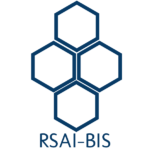
The British and Irish Section of the Regional Science Association International was founded in 1968 and it forms part of the Regional Science Association International (founded in 1954). The British and Irish section is one of the 18 European sections of RSAI that fall under the European Regional Science Association (RSAI also comprises a North American Regional Science Council and a Pacific Regional Science Organisation). Its membership is drawn, in the main, from academics, consultants and scientists in local and national government, who share an interest in spatial issues.
As with all the RSAI sections (national and regional associations), the British and Irish Section seeks to promote the study of regional and urban phenomena and the advancement of regional science. Regional Science is a multi-disciplinary field, with a strong foundation in quantitative methods, encompassing expertise in economics as well as geography, planning, mathematics and sociology. With the development of the interest in spatial issues across a range of fields (economic geography, spatial economics, regional studies, urban economics, spatial econometrics, etc) as well as in policy (see, for example, at the European level the European Spatial Development Perspective), regional science has become at the centre of the development of theory and method in urban and regional analysis and policy.
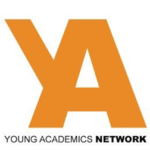
The AESOP Young Academics Network is a loosely structured branch of AESOP, which encourages the active participation and exchange of academic work. From PhD students to Post-docs and those starting out in academic positions, the YA Network provides a platform through which the academic leaders of tomorrow can share ideas in an open and inclusive environment, challenging and supporting one another in the attainment of superior academic output.
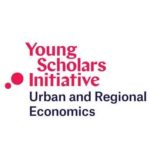
The Urban and Regional Economics Working Group explores the role of geographical space on economics and development, as well as the role of cities and the emerging importance of the political economy of urbanization.

Coffee Break with Researchers is an online platform with the aim to make scientific knowledge accessible to all. We produce videos and podcasts with researchers while having a coffee. We cover published papers, research projects, and teaching content. We are true to scientific knowledge, understandable to everyone, and provide a human touch to research.
Edward Elgar Publishing is a leading international academic and professional publisher with a cutting edge program of books in Regional Studies. Built on strong author relationships, we are an independent, family-owned and multi-award winning company.
We are delighted to be participating in the Regions in Recovery Festival and to offer participants a 50% discount on our Regional Studies books for the duration of the event. Join us for our Meet the Editors session to find out more about our latest books and how to publish with us.
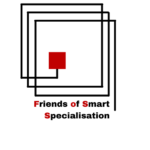
The Friends of Smart Specialisation (FoSS) is a group of independent innovation policy experts, set up in Brussels in 2018. The group’s goal is to support the mainstreaming of smart specialisation as an instrument for strengthening the multi-level European innovation system.
Smart Specialisation can play a coordinating role in European policy development in aligning innovation and transformation policies at different levels (regional, national, European). Smart Specialisation can, in particular, support the development of a common reference framework for aligning forces to tackle common challenges and opportunities. The group have produced a mission statement that gives an overview of the group’s thinking on smart specialisation.
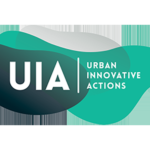
Approximately 359 million people – 72% of the total EU population – live in cities, towns and suburbs. Urban areas face multiple and interconnected challenges related to employment, migration, demography, water and soil pollution… But, they are also engines of new ideas and solutions, dynamic places where changes happen on a larger scale and at a fast pace.
To answer the increasingly complex challenges they face, urban authorities need to go beyond traditional policies and services – they need to be bold and innovative.

Taylor & Francis partners with world-class authors, from leading scientists and researchers, to scholars and professionals operating at the top of their fields. Together, we publish in all areas of the Humanities, Social Sciences, Behavioural Sciences, Science, Technology and Medicine sectors. We are one of the world’s leading publishers of scholarly journals, books, eBooks, text books and reference works.
We have a passion for digital distribution (we are one of the leading publishers of online journals and eBooks) and are committed to distributing and making our journals as widely available as possible to not-for-profit institutions in developing countries.
Taylor & Francis Group publishes more than 2,700 journals and over 5,000 new books each year, with a books backlist in excess of 120,000 specialist titles. We are providers of quality information and knowledge that enable our customers to perform their jobs efficiently, enhance their education, and help contribute to the advancement of their chosen market sectors.
Taylor & Francis Group is part of Informa PLC which operates at the heart of the Knowledge and Information Economy. It is one of the world’s leading business intelligence, academic publishing, knowledge and events businesses. With more than 6,500 employees globally, it has a presence in all major geographies, including North America, South America, Asia, Europe, the Middle East and Africa.